Information/Write-up
Ironhorse was a Canadian rock band formed in 1979 by Randy Bachman after his departure from Bachman-Turner Overdrive. Seeking a fresh direction beyond the constraints he felt with Freeways, Bachman relocated to the West Coast and began writing new material, while producing records for acts like Trooper.
He soon assembled a lineup with Washington guitarist/vocalist Tom Sparks, bassist John Pierce, and drummer Mike Baird. Under Scotti Brothers Records, they recorded their self-titled debut at Studio 55 in Hollywood. That 1979 album blended polished arena rock with blues and eclectic influences. Its lead single, “Sweet Lui-Louise,” reached #36 on the U.S. pop charts and #26 in Canada, supported by a summer North American tour.
Under label pressure to go more commercial, the band retooled in 1980: Sparks was replaced by vocalist/keyboardist Frank Ludwig (formerly of Trooper), bassist Ron Foos (from Paul Revere & the Raiders) came aboard, and Chris Leighton joined on drums. This lineup recorded Everything Is Grey at Legend Studios in Lynden, Washington, co-produced by Dennis MacKay.
The album’s feature track, “What’s Your Hurry Darlin’,” was co-written by Bachman and Carl Wilson of The Beach Boys. It charted modestly at #84 in the U.S. Although Ludwig’s keyboard emphasis gave the record a more pop-oriented sheen, Ironhorse still anchored its identity in strong guitar work and rock sensibility, with other highlights including “Only Way to Fly,” “Try a Little Harder,” and the moody title track.
Behind the scenes, Ludwig and Bachman also collaborated on additional demos (like “Do Ya,” “Brand New,” and “Quiet Desperation”) that didn’t quite fit the Ironhorse template. These recordings resurfaced in 2013 and were considered for a posthumous release titled Later Than Never.
By late 1980, with the contract at Scotti Brothers expired and commercial momentum waning, Ironhorse morphed again — bringing in CF “Fred” Turner (from BTO) and rebranding as Union, who released On Strike in 1981 and marked the closing chapter of this era.
-Robert Williston
Randy Bachman: vocals, guitar
Frank Ludwig: lead vocals, keyboards
Ron Foos: bass
Chris Leighton: drums
Tom Sparks: guitar, backing vocals
Written by Carl Wilson (A1); Randy Bachman (A1–A3, A5, B1, B3–B5); Tom Sparks (A3); Frank Ludwig (A4, A5, B2, B4)
Produced by Randy Bachman and Dennis MacKay
Engineered by Dennis MacKay, assisted by Chris Haas, John Austin
Recorded and mixed at Legend Studios
Art direction: Bob Defrin
Cover illustration: Braldt Bralds
Photography by James O'Mara
Management: Waymark
Additional Notes:
Frank Ludwig (ex-Trooper) joined the band for this album, replacing Tom Sparks as the primary vocalist.
The album features the minor Canadian hit single “What’s Your Hurry Darlin’,” which peaked at #84 on the charts.
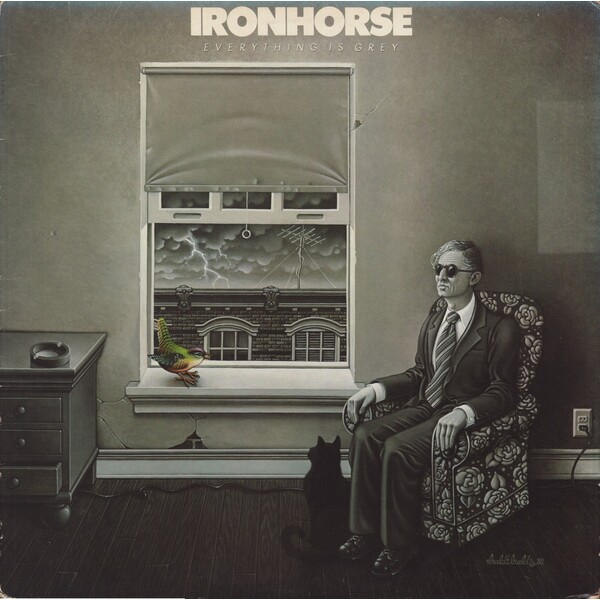
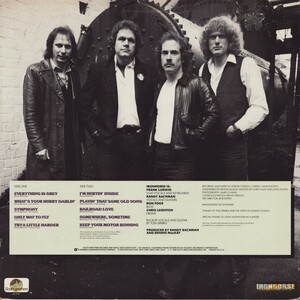
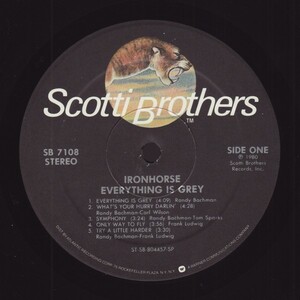
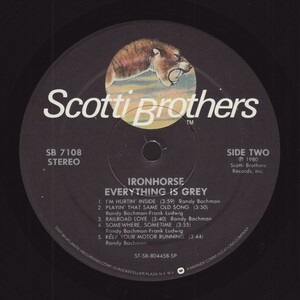
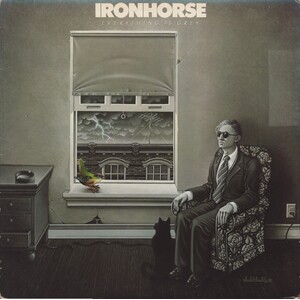
No Comments